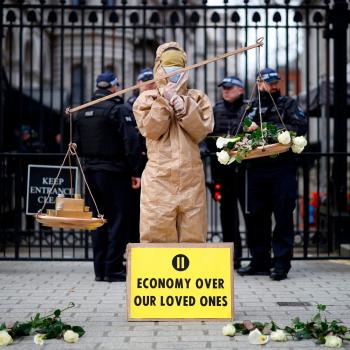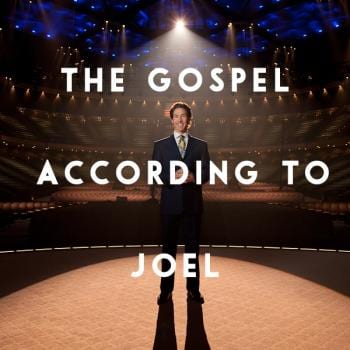When people hear my story, they often ask me why I stayed in church, and I rarely have a concise or coherent answer. All week, in preparation for this post, I have been trying to articulate my thoughts and feelings about why I kept going to church after being hurt deeply by the church.
The truth is that it’s puzzling. I was wounded, and I kept going back for more. Then I helped start a church. It really doesn’t make sense, but I think I have pinpointed a few reasons and happenings that caused me to stay in church despite being disenfranchised by her.
First, let me provide some context. I grew up in the South, the daughter of a Free Will Baptist minister in North Carolina. I loved my church. I spent what felt like every waking moment there. I even went to the school associated with the church, and I was in services at least three time a week. The church was like a member of my family, something so inextricably intertwined with my identity that when it broke my heart, I couldn’t find myself for a long time.
And when I say it was a part of my family, I mean it. It had almost been passed down through the generations like a family business. My great-grandfather started it, my grandfather pastored it until he died, and then Dad took over when he was 24.
So when news broke out that my parents were splitting up because Dad had been unfaithful, it spread like wildfire, taking down everything we had built up: our name, our source of income, our community, our way of life.
It was all gone in an instant.
People turned their backs on us. They asked us to leave. They made us feel marred, ugly, forgotten. They explained to my brother and me that it was uncomfortable and awkward to have us continue going.
We hadn’t done anything, but we lost everything.
This happened my senior year of high school, so one would think that I would stop going to church, but I didn’t. I couldn’t. I had gotten a full scholarship to college contingent on spending my weekends in a traveling singing group that went to churches all over the Southeast. (I know. It sounds crazy. It was!)
So, I was there every week, but I wasn’t really there. I hated the people in every church we went to because I didn’t know them, and I didn’t care. I matched their faces with the faces that had hurt me. I assumed they were all the same. I mocked them from inside and smiled and sang on the outside because I could. It was almost like I had a secret, like I was better or smarter than they were. I wasn’t going to let them break me again.
When I finished college, I kept going to church becauseit was a habit. It was familiar. It was tradition. It was simply what I did. I identified with the church. I knew how to act at church. I understood the language, the society, the hierarchy. All of it.
Something about that familiarity ironically felt safe to me. I was living in a new state, and I needed community.So, I found it there, and people were truly kind to me. They didn’t understand me, and they could tell I was guarded. But they were nice. They reached out, and when I shyed away, they kept reaching.
Then, my husband and I were asked to be on a church planting team in California, and for the first time, I got excited about church again. I had this feeling that if I were able to help start a church, I could be involved in the redemptive process of doing it right. I could make sure people didn’t get hurt like I did. I could make my pain worth it.
So we went, and it was the hardest thing I have ever done. One of the initial team members, who eventually left, was vocal with the leadership about his feeling that I was not “Christian” or positive enough when I was giving my opinion or any criticism about how we could do things better. Because of that, I felt ostracized from what I had moved my entire to life to help create. I wanted to reconcile my experience, and here again, I was being thwarted by people who didn’t understand me.
I thought about moving back home every day for six months, and I was convinced we would. Slowly, though, things began to get back on track. People started showing up. I started to get excited again.
But just about the time I felt like things were getting better, tragedy swept in and almost overtook me. My father committed suicide within a year of us moving to California, and it was the most shocking, horrifying, Earth-shattering pain I have ever known. It made me feel guilty for leaving. It made me regret trying to redeem my past. It brought back all that old rage, hurt, and shame.
I wept every day for months. I pummeled myself emotionally and blamed myself for trying to start something that was impossible to do in the first place.
Then, I became numb.
I remember driving home from work one day and thinking, If something happened to me, would it matter? Does anything matter? Why am I here in California? Why did I leave Dad? What good am I doing?
I always thought it was odd that the Bible talks about God speaking in a still, small voice until I heard it that day. It was still; it was inaudible, but it was not small. It jolted me from the inside out like an electric shock, like someone touching you softly with a cold hand and causing goosebumps to ripple all over your skin.
From deep within my being, I heard, You matter. This matters. Keep going.
That experience made me move forward. I can’t explain it. Somehow connecting with those words made me brave again. I knew it was going to be ugly, hard, gut-wrenching work. I knew I was setting myself up for more hurt. But I also knew that I mattered, that what I was doing mattered, and that I had to keep going.
The church can be a dark place that causes anguish and destroys faith, but it can also be a place of community, of love, of light, of hope.
I stayed in church at first because I didn’t know what to do without it. I didn’t know who I was. I kept going out of habit. But then I wanted to make my suffering count, to make a difference, to do what I could to make it a safe haven of peace and unity.
It has been soul-crushing work at times, and it has been uplifting in ways I cannot express. But more than anything, beginning again at Hingepoint, our church plant in California, has been healing for me. It has reconciled my story, and it has soothed my soul, not because it’s perfect. It is absolutely not, but because it’s trying.
I understand why people leave church. I really do. In many ways, I understand that more than why I stayed.
But I am so grateful that I can say that church can be a good, holy sanctuary of love, forgiveness, and redemption.
Somehow the body of the church both tore me apart and put me back together. It hurt me, but it healed me, too.
People are imperfect, and the church is people. It’s me. It’s you. I chose to stay a part of the church because I knew that in some small way, I could help be the change I wanted to see.
I am so honored and humbled to be asked to share my story with you guys.
Grace & Peace, dear friends.











